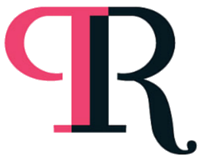
Currently, I’m falling hard for bell hooks’ All About Love. While I may be a little late to the party, as I cry between pages that reveal hard truths about my own love life and relationships, I understand more and more why this beautiful read is so highly praised.
There’s something sacred about using the words of another to help shift our own perspectives. Whether we’re facing our demons or laughing until our cheeks are soaked in tears, reading is a gateway to our higher selves. When we read stories from varied points of view, more of our personal narrative is revealed to us, and human existence becomes less of an enigma.
A routine message in our team group chat is, “What are you reading?” My former literary agent once told me, “You cannot be a phenomenal writer if you don’t read the work of phenomenal writers.” Across industries, a steady truth is that the most successful artists are those who study their craft. Even if it’s just a quick 30 minutes, myself and my teammates prioritize our reading lists as a way to build our propensity for storytelling, and as a means to inspire works that revolutionize and disrupt society.
The books we share in the chat are informative, fun, and even life changing, like Gloria’s most recent mentions: Verlyn Klinkenborg’s nontraditional guidebook, Several Short Sentences About Writing, Kimi Cunningham Grant’s thriller, These Silent Woods, and Paul Kalanithi’s powerful memoir, When Breath Becomes Air. Sometimes, while excitedly sharing our current reads, we discover that we’re reading the same titles or books by the same authors; moments that leave us feeling more connected than ever. One of those instances occurred when Merisa and Cassia revealed that they were both reading the #1 New York Times bestselling author Yung Pueblo.
On The Side Effects of Reading episode of Amanda Seales’ Small Doses podcast, Levar Burton, actor and former host of PBS’ long-running educational TV series, Reading Rainbow, emphasized that reading for pleasure is “the key” to our imaginations, and the things that connects us to our “birthright” as storytellers.
“We are all storytellers,” Burton claimed. “And in order to take that storytelling to a level that benefits the entire species, we need to spend time in our imagination. If you dream it, you can do it. But you’ve gotta dream it first. And we stop being dreamers when we stop reading.”
By the time I was six years old, I was carrying my own library card to weekly visits with my dad and siblings. I loved how the minute you stepped through the double doors you were immediately transported into the vastness of countless other worlds. Picture books, novels, CDs, and VHS tapes became the portal for my siblings and I to create unforgettable memories.
During late night study sessions or the routine pick ups and drop offs of borrowed titles, the library was always my safe haven and incubator for my creative ideas. According to the Canadian Children’s Literacy Foundation, avid reading in early childhood leads to greater empathy, sharper communication skills, higher wages, and better health. Knowing this, I can’t help but wonder what the implications will be for the many young people who will be impacted by the decision to replace my local Toronto library with a medical university. With this closure, what does that look like for their inner storyteller, or for the endless worlds it takes along with it?
Many self-proclaimed content gurus try to promote the idea that, with the help of technology, a “good” book can be manufactured in 7-10 business days, and published in less than 3 months. Truth is, some people would rather sacrifice quality for a quick dollar, and it pains me to see it every single time.
Just a few months ago, I had to put my foot down in the comments section of a post that endorsed the practice of using ChatGPT to create income through longform written offerings. When roughly a quarter of American adults — including 38 percent of Hispanic adults, 25 percent of Black adults and 20 percent of white adults — say they haven’t read a book in whole or in part in the past year, whether in print, electronic, or audio form, it speaks volumes about the current state of available content.
With the global publishing industry set to reach $108.8 billion by 2030, readers haven’t consistently slowed down their reading since 1978 because they have nothing to read. Instead, numbers show that people aren’t reading simply because they have less interest in the act. The growing world of social media and the high-speed information highway of the internet has shifted our appreciation for words into an oft-meaningless dash to consume them. At WritersBlok, we’re working to change this.
The power of words is not solely in the sounds themselves, but in combination with the conditions and intentions they bring forth through their spirited delivery. Imagine, a simple idea has the ability to sprout into a piece of work that can enlighten the minds of millions. Tapping into your authenticity has a ripple effect that goes on to create loyalty, trust, and respect; And it’s that ripple effect that we aim for each time we help our clients turn their personal stories into brand assets.
Our clients respect that quality takes time, and at WritersBlok, we aim to create legacy pieces that have no shelf life or expiry date. We’ve worked on hundreds of projects and hosted thousands of interviews, yet we’re almost always asked at some point in the process, “Does my story even matter? Are people going to care? Is what I’m adding to the market even relevant?” The answer is always a resounding “Yes!” And we have the receipts to prove it.
We typically don’t reveal the clients we work with due to confidentiality agreements, however, with their permission, our amazing partners, Isis Bradford and Luke Lawal Jr., agreed to share their testimonies. The two newest books to hit the market are Isis’ Skyrocket Your Business with Social Media: Personalize, Increase, and Grow Demand for Your Brand, which will be incorporated in college and university curriculums across the US as early as next year, and Luke’s Rich Black, Poor Black, for which he recently wrapped a multi-city tour.


Storytelling is so powerful that any book written with passion and others in mind can become an income-generating tool that lasts the test of time. But the continued dominance of white, able-bodied, Christian men reminds us that there still needs to be a place for more voices to be heard. The future representation of these groups is a battle that will only be won by diverse storytellers, with inclusive narratives, and the allies that are willing to stand in solidarity.
As an advocate of children’s literacy, every quarter, WritersBlok is committed to donating a percentage of our profits to a charity that we’ve selected for their immeasurable impact on our community. Whatever help you may need in telling your story and representing your worldview, we’re also along for the ride to provide our unwavering support.

The Three Rules of Writing a Good Book
Understand that “everything is copy”
I heard a quote that says, “You die when people stop saying your name.” So what are the chances that a story published in the 1980’s about a poor, 14-year old African-American girl, in rural Georgia during the early 1900’s, would go on to become #17 on the American Library Association’s list of the 100 Most Frequently Challenged Books (2000–2010)?
Classics like The Color Purple continue to evolve and be consumed by new generations of audiences because their stories are exciting, informative, and most importantly, relatable. Several films, and one long-running, award-winning musical later, Alice Walker’s characters endure. The side effect of this endurance is an immortal place in cultural history; a miraculous feat for an author like Walker whose identity remains underrepresented in the literary world.
A good story can never be denied or stay hidden. As the late writer, director, and journalist Nora Ephron put it, “everything is copy.” Simply put, anything and everything that happens to us can be written about. Novels like The Color Purple, and even genres of music, like Hip-Hop, go on to conquer the world by highlighting our natural inclination to share complex and nuanced experiences with one another. The greatest legacy of such works are the highlight of our humanity through shared details, facts, figures, and feelings.
Answer the questions that are already being asked
There’s never a dull moment when looking at the world through our clients’ eyes. We have the pleasure of working with individuals who are seasoned explorers. They’re curious about their surroundings and of the many ways they can contribute to innovations within their communities. Thought leaders who put forth world-renowned written works answer longstanding questions with universal truths, and find ways within their own understanding to demonstrate their expertise on the matter. By getting to know your audience, you’ll find the questions needing to be answered. Answering the questions determined by your targeted audience helps to bridge gaps between generations, races, cultures, sexes, and more. There’s levels to this storytelling game and the trick to surpassing every single one is by listening to what people want to hear. Once you get serious about feeding the masses the information they crave, crafting a good book becomes much easier.
Get the world watching and give them something to talk about
Genuine collaboration is back in style, and the revolution has fully formed against divisive narratives. The demonetization of the Fresh and Fit podcast is the latest example of audiences’ divestment from such controversial rhetoric. With globalization at play, the world is watching, so you should give them something to talk about. But to keep them talking about you, you have to talk to them.
To write a book that sticks, you must be inclusive. You have to learn how to speak the language of the audiences you’re hoping to resonate with. If your hope is to be successful, then the goal should be to reach everyone. The key to doing this without losing your authenticity is by utilizing themes and topics that unite. As Diddy put it in the promotional piece for his latest album drop, “This is the era of love.” On the heels of Hip Hop’s 50th anniversary, he’s leaning into our longing for connection and nostalgia to spark something new and unforgettable for a wide range of fans and onlookers.
